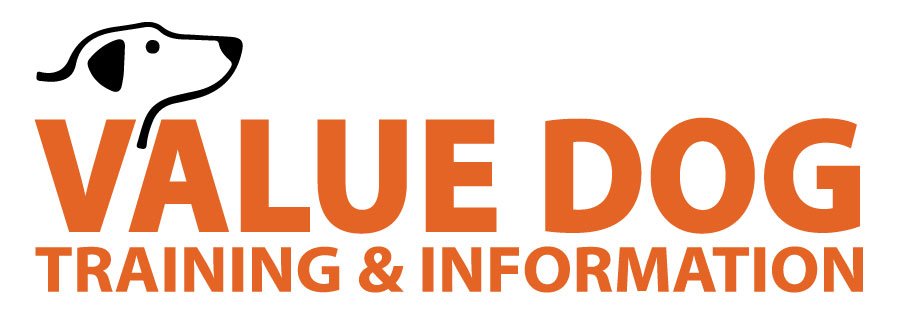Human Foods That Are Toxic to Dogs
It's important to know what foods are toxic to dogs and avoid them. We may treat our dogs like they're human, but that doesn't mean they get to eat "people food." It made us wonder: what other common foods are dangerous for our dogs?
Keep scrolling to see the list and the side effects.
Avocado - Avocado Pit contains persin, a toxin that can cause vomiting and diarrhea in dogs.
Grapes and Raisins - Grapes and Raisins can cause kidney failure and disease. No one knows the exact mechanism, there is a direct association, which also extends to raisins, which are even worse than grapes.
Apricot Stems, Leaves, and Pits - These can cause dilated pupils, bright red mucous membranes, difficulty breathing, shock, and death. They contain cyanide and are most potent when wilting and rotting.
Onions and Chives - "They’d have to eat a lot of onions, but for dogs or smaller dogs that can be very dangerous over time because it causes anemia," also can cause gastrointestinal irritation.
Garlic - Just like onions, garlic can cause stomach issues and even anemia.
Raw or Under-Cooked Meat and Bones - Be very careful with the meat or bones you give your dog since raw or under-cooked products can contain bacteria such as Salmonella and E. coli. Bones also pose risk of causing obstruction or even puncturing the gastrointestinal tract.
Chamomile - Chamomile is the daisy plant herb that can cause contact dermatitis, vomiting, diarrhea, and anorexia in your dog. Long term use can lead to "bleeding tendencies.
Salt and Salty Snack Foods - Don't share chips with your canine friend because they can cause excessive thirst and urination, or in cases of sodium toxicity, vomiting, diarrhea, hyperthermia, depression or stupor, tremors, seizures, and death.
Cherry’s Steams, Leaves, and Pits - These parts of the cherry also contain cyanide and can cause dilated pupils, bright red mucous membranes, difficulty breathing, shock, and death.
Macadamia Nuts - Macadamia nuts can cause weakness, depression, vomiting, tremors, and hyperthermia.
Other Nuts, including almonds, walnuts, peanuts, and pecans - These nuts can cause vomiting, diarrhea, and pancreatitis due to high fat content.
Mustard Seeds -These little seeds can cause vomiting and diarrhea
Rhubarb - Rhubarb causes hypersalivation, tremors, and kidney failure.
Tomato Plant - Tomato plants can lead to solanine toxicity, with side effects such as hypersalivation, anorexia, severe gastrointestinal upset, diarrhea, lethargy, central nervous system depression, confusion, behavioral change, weakness, dilated pupils, and slow heart rate.
Chocolate (Coco) - Many people know chocolate is bad for canines, but in addition to vomiting and diarrhea, the methylxanthines in the chocolate can lead to heavy panting, excessive thirst and urination, hyperactivity, abnormal heart rhythm, tremors, seizures, and death.
“Darker Chocolate” is more dangerous than milk and white chocolate as it contains a higher amount of methylxanthines.
Coffee and or Caffeine - Just like chocolate, coffee and caffeine both contain methylxanthines, which can cause the same symptoms as chocolate. Though your dog probably isn't drinking coffee with you, be wary of where you keep beans in your pantry.
Raw Eggs and or Uncooked eggs can cause skin and coat problems for your dog. There's also obviously the potential for Salmonella and E. coli exposure.
Milk and Dairy - Dogs have a low amount of lactase and have trouble breaking down lactose efficiently, which can cause upset stomachs and diarrhea.
Potato’s Leaves, Stems, Skin, Or Any Green Parts - Potato leaves and stems can cause vomiting, diarrhea, anorexia, disorientation, lethargy, and central nervous system depression. The skin can cause vomiting, diarrhea, lethargy, tremors, seizures, and cardiac arrhythmias.
Licorice - The dilute nutraceutical extracts can have anti-inflammatory effects, but large amounts of licorice can cause muscle damage and adrenal gland issues for your dog.
Alcohol - If your dog ingests alcohol it can cause vomiting, diarrhea, decreased coordination, central nervous system depression, difficulty breathing, tremors, coma, and death.
Yeast Dough - Dough with yeast in it can cause life-threatening gastric bloat through increased gas production. In small amounts, it can secondarily cause ethanol by-products to form and therefore cause alcohol-induced toxicity as well.
Hops - If your dog eats hops somehow, it can cause panting, hyperthermia, seizures, and death via an unknown mechanism.
Xylitol - Xylitol is a sweetener that’s common in gum and "sugar-free" products — including peanut butter. Xylitol can cause vomiting, lethargy, stupor, seizures, and coma. It can also cause liver failure by causing excessive insulin release and hypoglycemia.
When In Doubt, Ask A Vet
If your dog is acting strangely or experiencing minor symptoms of weakness, lack of coordination, vomiting, diarrhea, etc. and you think they may have consumed something they shouldn’t have, seek a veterinarian’s attention immediately. If you wait too long, your dog might not make it.
What If You Cannot Reach Your Veterinarian?
In an emergency, when you cannot reach your veterinarian, immediately contact your local animal emergency clinic or call one of these hotlines to speak to a toxicology specialist and vets who are able to assist 24/7.
Pet Poison Helpline 1-855-764-7661.
Value Dog Training - For more information, contact us at 916-201-7080.
Value Dog Training - Mission is to improve the quality of life for dogs, and the people who love them.
© Value Dog Training. All Rights Reserved.
